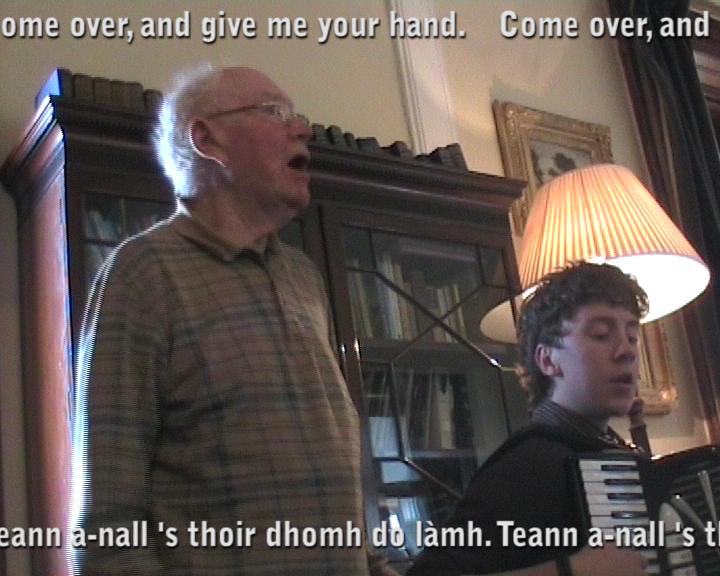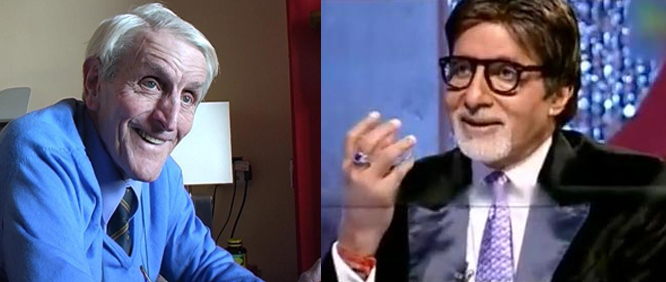G3 ‘s ann an shin
Lenition of seo, sin, siud (sheo, shin, shiud) is common in speech in this context, though not usual in written Gaelic.
G5 (‘S e) an rud a tha mo mhàthair ag innse dhomh gun robh.. Ann an iomadach dòigh bha i nas còmhfhurtaile ann an India
bha i na bu chòmhfhurtaile
“ ‘S e … gu(n/m) …” is a very common “fronting” mechanism in Gaelic to topicalise the phrase introduced by the “‘s e..”. In speech the “‘s e” itself is often actually left unsaid, as in this case, and understood from the context. Notice that, in the event, I actually stopped and started again with a new sentence – “Ann an iomadach dòigh bha i…” – so changing what was going to be a subordinate clause with dependent verb form (“gun robh”) into a main clause with independent verb form (“bha i nas còmhfhurtaile”). Note also the use of “nas còmhfhurtaile” in reference to the past. Standard grammar would prescribe “na bu chòmhfhurtaile”, though this rule is often broken in natural speech. I did “get it right” two lines further down!
G6 Tha ise 89 years of age a-nist
Every adult Gaelic speaker I know is also a fluent speaker of English. Code-switching and code-mixing between Gaelic and English are commonplace – though patterns vary from speaker to speaker with individual taste appearing to play a part. A lot of Gaelic speakers will use English numbers for eg dates or phone numbers.
G8 air a’ fòn
This usage breaks the rule that demands lenition of the f in this grammatical context. I don’t think I’ve ever heard anyone say “air an fhòn”, and I’m confident that “air a’ fòn” is standard usage. Perhaps it’s a subliminal effect of the English spelling of the word “phone”?
mo chuid obair
Grammar rules demand the use of the genitive case after “cuid” in this context. It should have been “mo chuid obrach”. The decline in use of the genitive is a commonly noted feature of modern Gaelic.
G9 rinn mi e
It should have been “rinn mi i”, as obair is feminine.
G12 tha mise air a bhith ag obair air togail ceanglaichean
gus am faigh sinn cothrom barrachd obair a dhèanamh còmhla.
Inversion of verb and object would have been preferable here – “ceanglaichean a thogail” – again I did better in the second half of the sentence: “barrachd obair a dhèanamh”.
 What a delight to see familiar faces in less familiar surroundings, and all contributing of their own talents to give everyone a good time. And what a privilege to be able to record it… Is there a better place to be on a midsummer night than Uibhist fhèin? View
What a delight to see familiar faces in less familiar surroundings, and all contributing of their own talents to give everyone a good time. And what a privilege to be able to record it… Is there a better place to be on a midsummer night than Uibhist fhèin? View  Nach mi bha lucky! Benbecula to Bollywood, in the YouTube company of Tormod and Amitabh. Any volunteers to do that backwards – उल्टा दौड़के? Read, listen, and view more
Nach mi bha lucky! Benbecula to Bollywood, in the YouTube company of Tormod and Amitabh. Any volunteers to do that backwards – उल्टा दौड़के? Read, listen, and view more 
